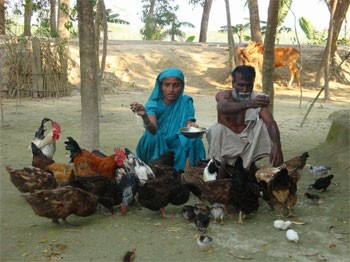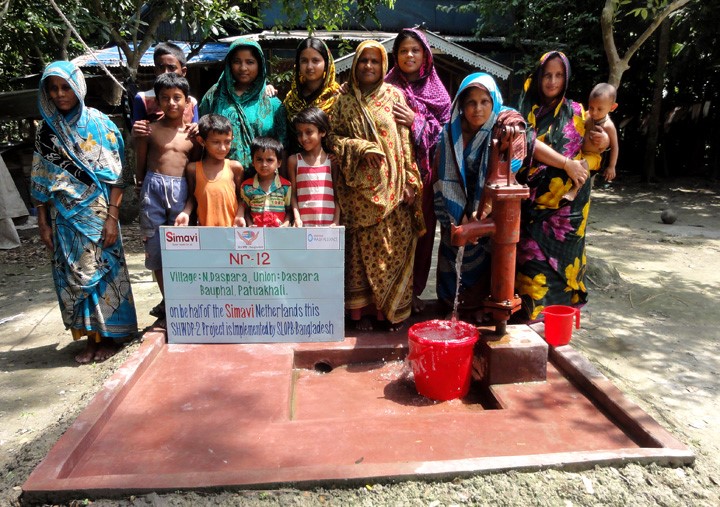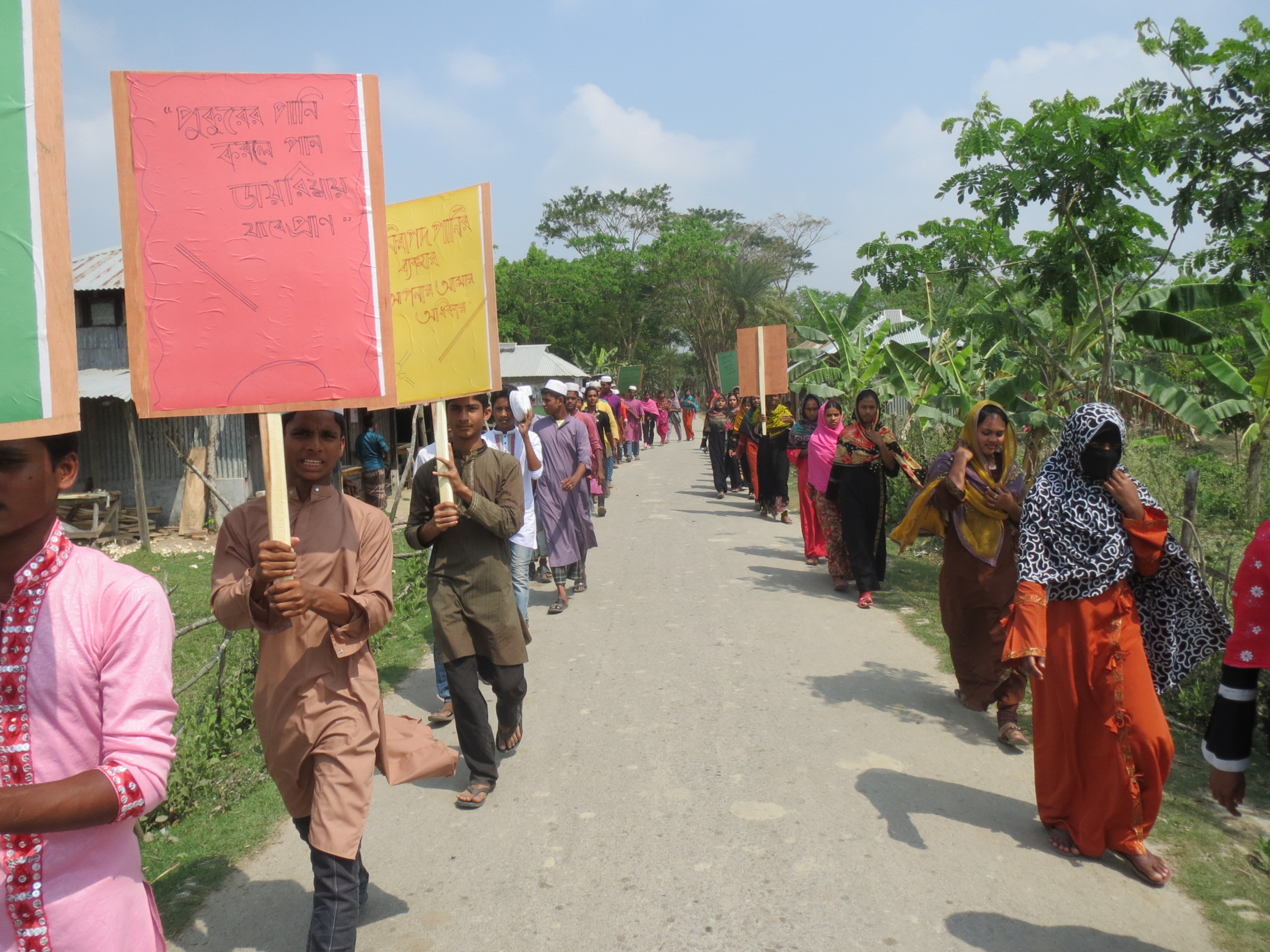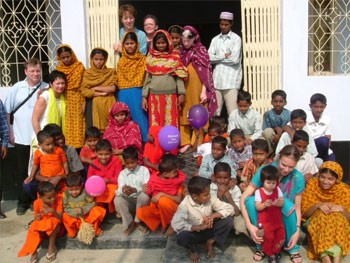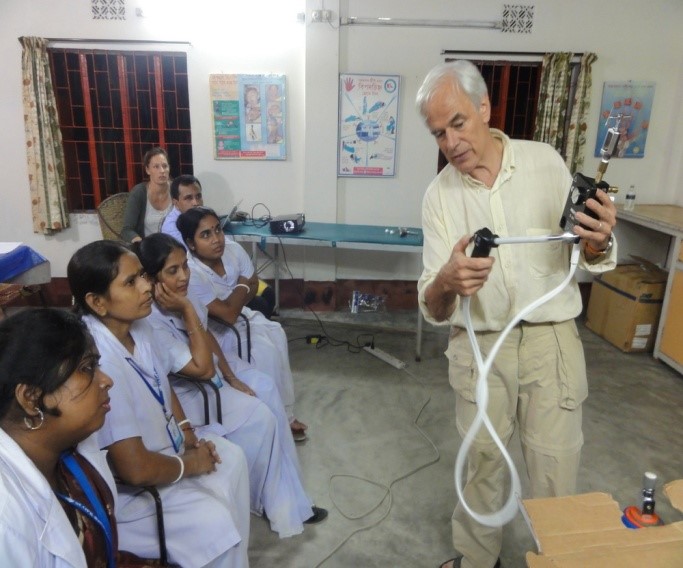Sustainable health and Watsan Development Project
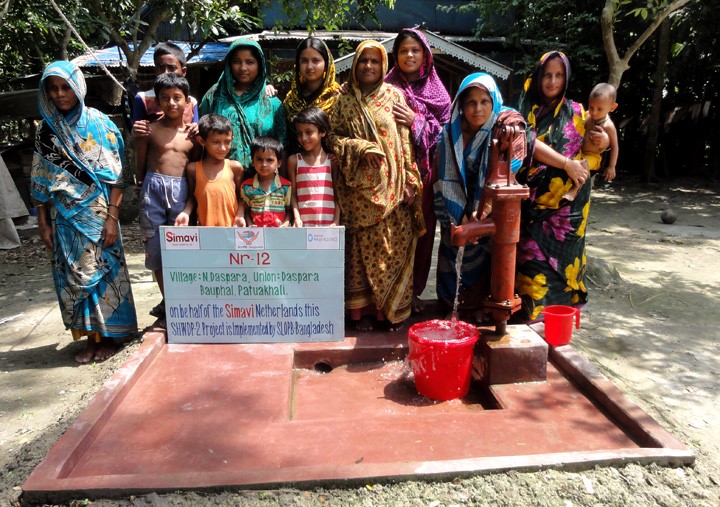
The project “Sustainable Health & Watsan Development Project (SHWDP)” is third initiative from SLOPB with SIMAVI to work jointly for the mitigation of WASH related problem of the coastal area of Bangladesh by implementing activities targeting marginalized people, women and children. Through these initiatives SLOPB has explored the opportunity to work in 70% new area to expand the coverage and address the WASH problem in most heightened area. This project was implemented in 20 Union of 8 Upazila (sub-district) of 3 southern - coastal district of Bangladesh and the project had covered the target beneficiary of 101807 households (approximate) which covers about 514045 people directly and indirectly. After completing that project further expansion possibilities has been explored and keeping that view all project reports, mid term evaluation report , available demographic data ( BBS 2012), social maps and Bangladesh national Hygiene Baseline Survey data has been reviewed and found 4 Unions Daspara, Nazirpur, Bauphal Sadar and Nowmala of Bauphal Upazila as the potential areas where the WATSAN situation demands further intervention. Following the needs and identified program, activitiies have been implemented during the period of Sep 2014 to October 2015 under the project “Sustainable Health & Watsan Development Project (SHWDP)-Phase-2” to achieve the objectives as specified. Its noteworthy to mention that most of the activities have been completed and achived its targets and contributed to WASH Alliance indicators. In this phase a new approach has been adopted to develop a revolving funds by sharing increased costs for DTW installation and though the process at the end of the project an amount of Tk.1,599,425 has been generated as the revolving funds and as agreed with the SIMAVI Netherlands and the community further plan has been developed to use that funds to serve more people for meeting their needs on WASH with the approach of 100% costs sharing to keep the RLF as remain for further activities and contribute to financial sustianability. Considering the requirements this prposed project for 2016 has been planned to use the RLF for those 4 Unions of Bauphal Upazila to carry out activities to reach remanining targets to ensure full coverage . Its planned to install the DTWs for ensuring safe water , providing loan to the HHs for installing the improved latrines , providing loan to the local entreprenurs to expand their business for promoting sanitation markets and contuning the production of low cost sanitary napkins and its marketing to ensure access to the napkins and increase menstrual hygiene practice among the adolescents and women. Furthermore, for the prposed funding of Euro 50,000 to carry out activities to contribute to the WASH Alliance indicators and sustanability plan of the WASAH interventions it has been reviewed the potential areas where the WASH status needs to be improved and based on the context analysis and needs of the people it has been found Dasmina Upazila of Patuakahali district as most vulnerable area to work on as the FGDs carried out with the community and the local government both union and Upazila level shows that drinking water has been prevailing among the people in all unions
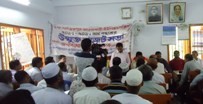
A high percentage of people (95%) are using DTW water for drinking purpose but still they are not using the safe water for other household purposes. It is also learned that during the rainy seasons the percentage of drinking DTW water considerably drops down because of the fact that during rainy season the roads become terribly muddy with soft clays & submerged water and the women can not go out to fetch water from distant DTWs. So they are compelled to drink near by cannel, river or pond water. As a result outbreak of water born diseases are more in rainy season then in other time of the year.
It is also evident in the FGD data that because of the long distance of the DTW, the inhabitants can not use DTW water for cooking, washing & bathing purposes. The FGD result also reveals that the situation of sanitation awareness and the use of improved/hygienic latrines in the proposed unions are also inadequate and it requires further motivation/ activities to ensure the existing latrines are repaired or installed as improved latrine . In addition to that FGD outcomes latest national level report shows that 85 % of the total populations have access to safe drinking water and access to sanitation coverage is reported as 57% and national hygiene baseline survey shows that at house level and school level proper hygiene practice is for house level hand washing with soap for women is 57% and students hand washing with soap is 28% ,thus, it is reality that Bangladesh faces multiple challenges in the WASH sector. The country commitment is to reach 100% Open Defecation Free (ODF) but still 1% is left to achieve although the activities have been accelerated with many efforts by GoB and international donors . The scenario varies in different location but in the Patuakhali District it is worse as it is one of the poorest/ significant number of people are in below poverty line area among 9 areas of Bangladesh and furthermore, it is natural disaster prone areas which puts people in trouble as it destroys or contaminates many tube wells, ponds and damage the latrines, and it impacts on the actual figures/achievements on drinking water and sanitation coverage and ultimately it causes for water born diseases which is one of the major cause for high rates of morbidity and mortality.However, considering the funding limit and getting maximum output of that funds, this project will cover two Unions of the Dasmina Upazila which respectively are Betagi Sankipur and Alipur. Considering the WASH needs, WASH Alliance indicators and ToC the activities have been identified to achieve best results to contribute to improve the WASH status of the proposed area. The activities focus on the safe water, hygiene and sanitation as these are vital for protecting environment, improving health and contributing in poverty cycle to alleviating poverty. Moreover, it is the basic human right to have access to safe water and sanitation at an affordable price.
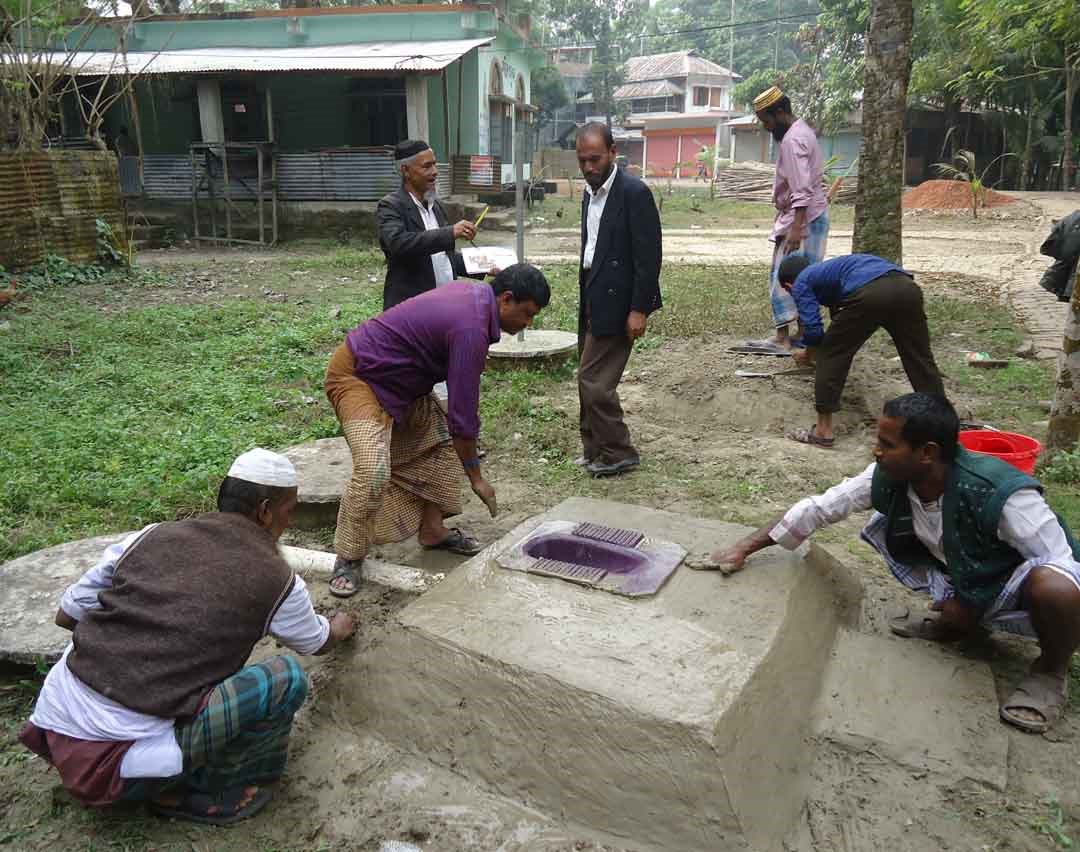
Stakeholders
• Community
• Community groups
• Ward Committee
• Union Parishad WASH standing committee
• Union Parishad
• DPHE
• Upazila Parishad
• Schools
• Media
• Traditional Birth Attendants ( TBA)
• Bangladesh WASH Alliance
FIETS Sustainability
Financial Sustainability
Since the financial sustainability is the key to have positive long term effect after ending the project, thus, it has been focused as the key in the project approach to make sure further investments are not depending on the donor money to continue interventions. Thus, it has been agreed to follow the strategy to ensure community people’s financial contribution for the activities, especially for the hardware activities of installing DTWs 72% cost sharing was ensured for the 2nd phase of the project. Through this approach, community people who requires hardware support had shared 72% cost for the DTWs and after ending the project period 52% of the money ( BDT 1600000) has been generated as revolving funds for further investment to sustain its financial strengths. Same approach will be followed for this prposed phase and its expected to generate an amount of BDT704,000 as RLF and it will added with the funds of last phase . Detail strategy with implementation guideline is agreed with donors to ensure effective use of revolving funds and its accounting procedure to make sure transparent systems are followed for long run.
Institutional Sustainability
First phase of the project SHWDP has established Community Based Organizations (CBOs) and series of training were provided to them for building their capacity, developing their group dynamism and making their strong unity. Different advocacy sessions were conducted to ensure transparency and accountability of the LGI’s and enhanced access of the rural poor people in the local level planning. However, the project included further activities to follow up the CBOs activity and planned for activating and building the capacity of the government WASH structures in the local level to continue for long run. It is expected that after ending the project the process will continue to focus WASH institutionally as sustainable effort. On the other hands the CBOs will continue working as pressure group to focus the WASH issues. Furthermore, the capacity building effort has been included for SLOPB as an organization will also have long term impact for the SLOPB to act as an institution for continuing supporting community people in an sustainable manner. It is expected that the coordinated effort of the community people and local government (LG) representative to reduce the gap of the expectation and receipt through developing a congenial development effort on the priority setting on the highest needs as well as ensure the active role of the LGI to mitigate the problems of water, sanitation and hygiene
Environmental Sustainability
For the environmental sustainability all the activities of the project has been identified following the no harm principle to avoid environmental damages. Thus, issues have been included in the courtyard meeting and all other awareness activities planned for the community to aware people on the environments issues for practicing , furthermore, the hardware installations are also designed in a way that it has no bad environmental impact. Furthermore, SLOPB as an organization has included environment issue as its mainstreaming issue in all other different projects/programs for mainstreaming.
Technological Sustainability
For ensuring the technological sustainability specially for the hardware activities it has been focused on the locally appropriate and affordability. It includes installing latrines ensuring the flood level, Introduce latrines suitable for disabled and disaster prone areas ,Installing latrines attached to homes, raising the DTWs platform considering the flood level, ensuring the drainage system around the DTWs etc. has been included to make sure technological part is well addressed for long term sustainability. Furthermore, considering the sustainable support local entrepreneurs have been developed to introduce the improved technology which is more hygienic and sustainable for the long run. After ending the project the entrepreneurs will continue their business and it will ultimately contribute to ensure the technological sustainability in the community
Social Sustainability
As the social sustainability is one of the concern, thus, every steps of the project development and further execution of the activities community participation is ensured to get community involvement which builds the ownership which is required . Furthermore, activities such as raising the community awareness on WASH and motivation to practice, organizing and training for community leaders, promoting volunteerism and WASH education for school children will be contributing for social sustainability. SLOPB has established a two-storied
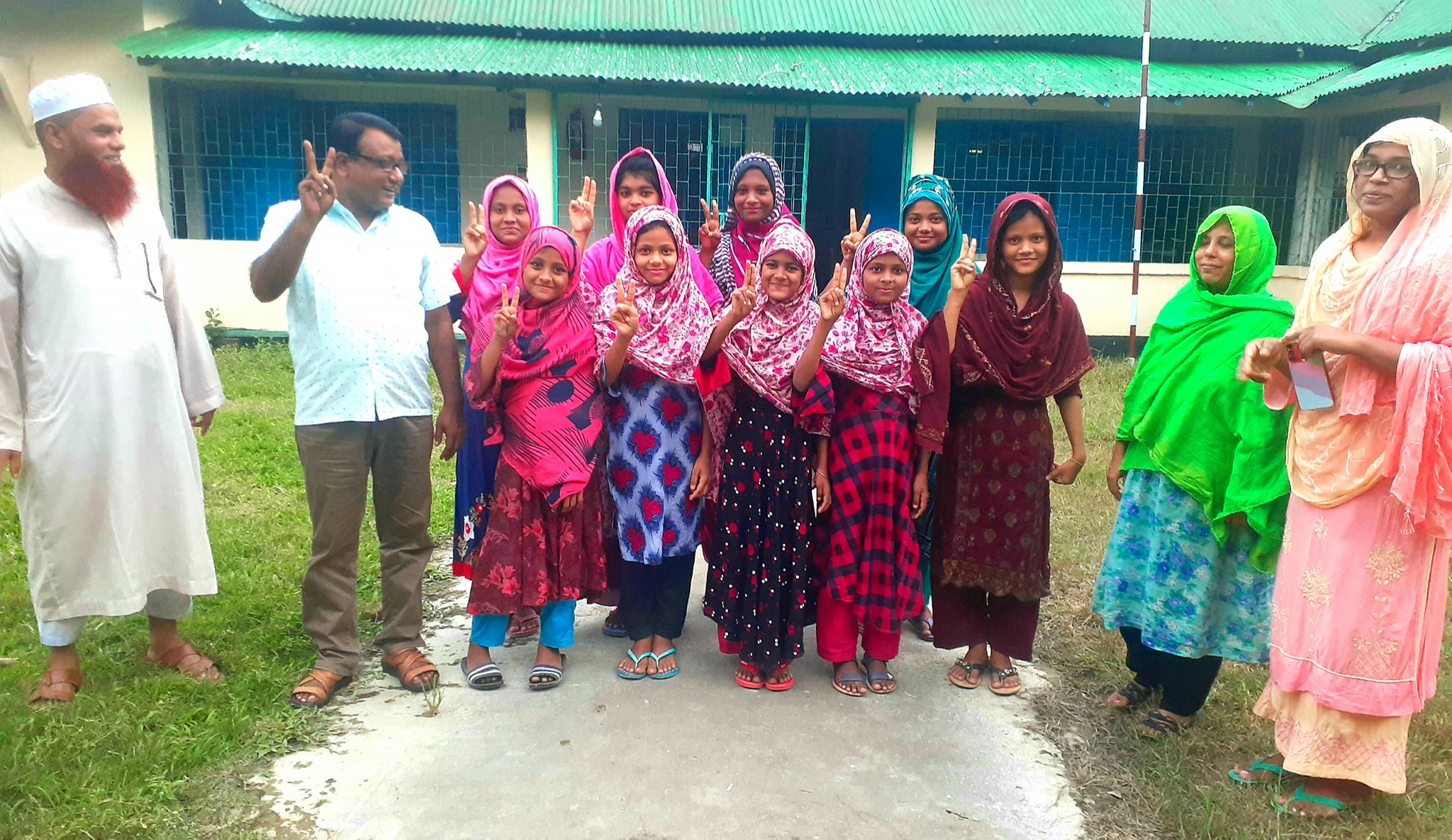
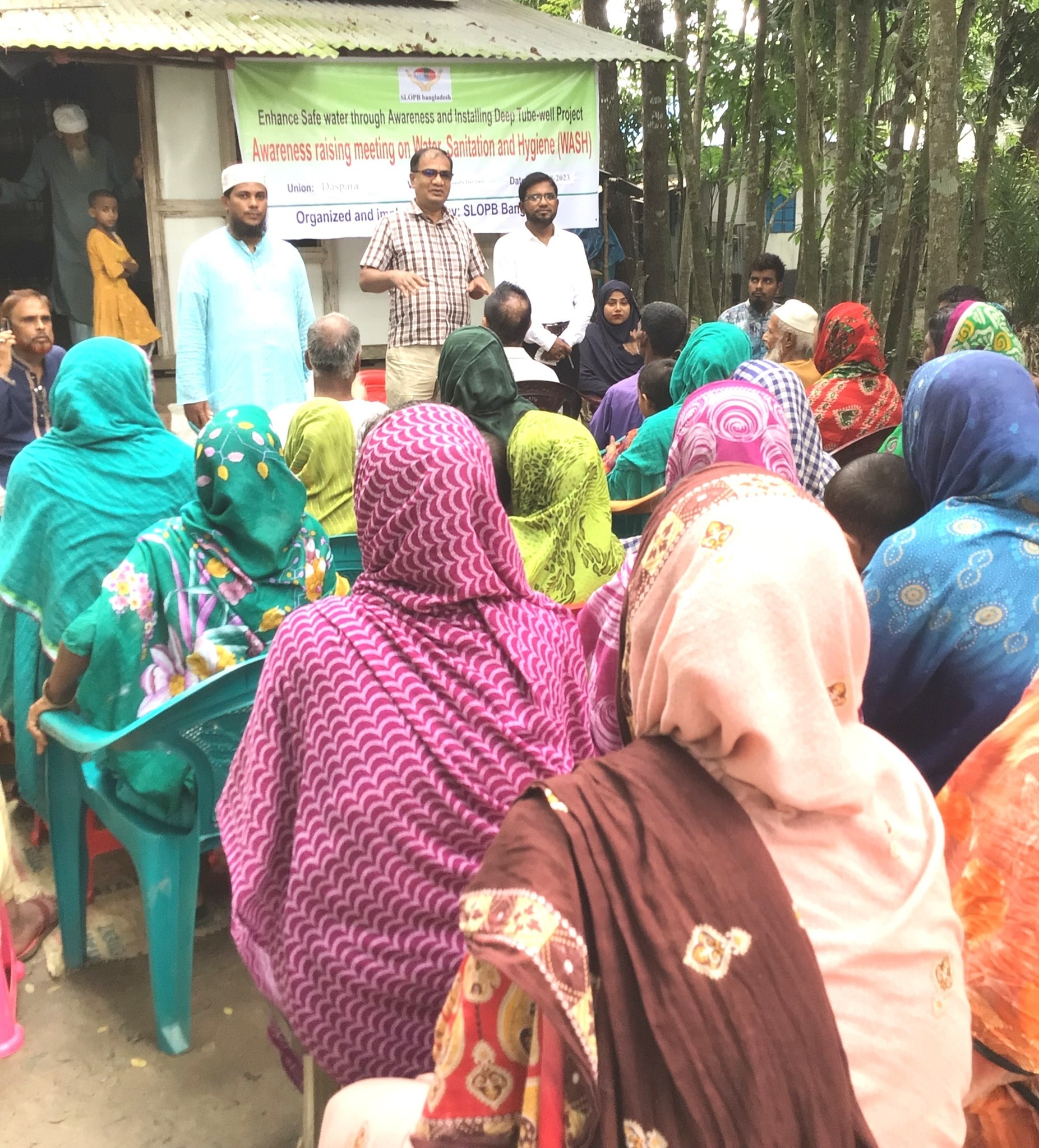
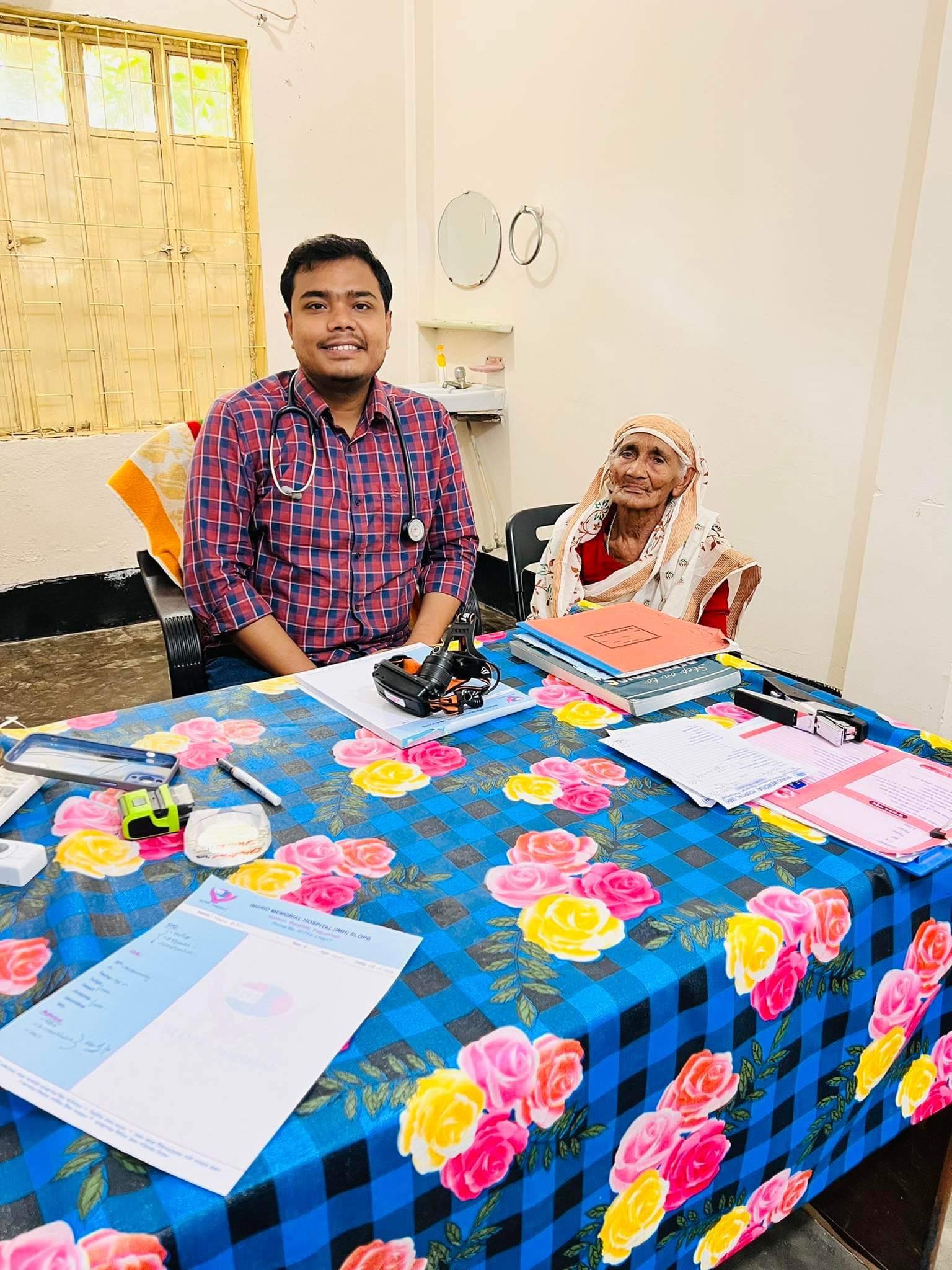
.jpg)
